In the context of the whole country promoting comprehensive digital transformation in the spirit of Resolution 57-NQ/TW of the Politburo , the tourism industry is facing an urgent need to strongly innovate management and operation methods based on digital technology. Digital transformation in the tourism industry has become an inevitable trend to increase the effectiveness of state management, enhance destination competitiveness, improve service quality, and is an important foundation to promote the development of smart tourism.
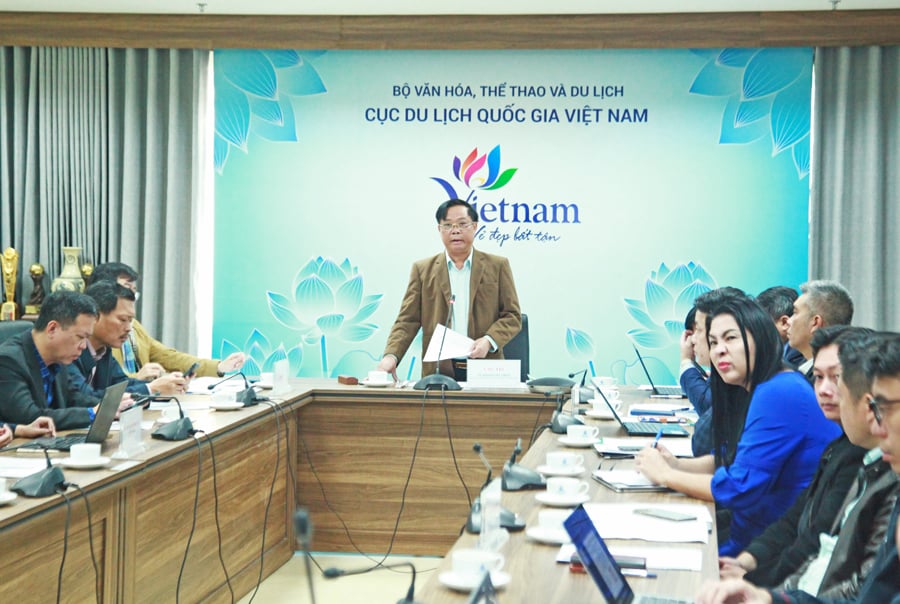
Deputy Director of the Vietnam National Administration of Tourism Pham Van Thuy chaired the workshop. Photo: TITC
In that context, in-depth research on digital tourism maps - an important component of the smart tourism ecosystem, has profound scientific and practical significance. Digital tourism maps are both a tool to introduce destinations and accompany tourists, and a platform for serving tourism destination management, tourism operations, resource management and policy planning support. Modern digital mapping technology allows for the integration of multiple layers of data, connecting multiple sources of information and visualizing data in real time, creating conditions to enhance information transparency and optimize the operations of relevant entities in the industry.
However, the implementation in many localities shows that tourism data is currently scattered, lacking synchronization, not standardized and not fully updated. Many digital map products are developed separately according to the needs of each province and each enterprise, leading to large differences in data structure, presentation methods and integration capabilities. This reduces efficiency, making it difficult for management agencies to access centralized data for analysis, evaluation and decision-making based on real data. In addition, many existing models are not yet closely linked to the requirements of sustainable tourism development; they do not reflect the carrying capacity, tourist flow, environmental and cultural impacts or the need for comprehensive management. These limitations require a scientific and unified process to ensure systematicity, standardization, wide applicability and ensure connectivity nationwide.

Deputy Director of the Vietnam National Administration of Tourism Pham Van Thuy speaks at the conference. Photo: TITC
In addition, the rapid development of digital technology and the need to modernize state management have created an urgent need to build a unified and modern digital tourism data and map platform, ensuring the ability to integrate, share and exploit effectively throughout the industry. Therefore, the Tourism Information Center, Vietnam National Administration of Tourism has implemented the project "Research on the process of building a digital tourism map platform for sustainable tourism development". The goal is to determine the scientific and practical basis for standardizing the process of building digital tourism maps; propose a standard process for building digital tourism maps based on WebGIS and MobileGIS; build a pilot model in Ninh Binh province; and at the same time propose orientations and solutions for replicating the digital tourism map model nationwide.
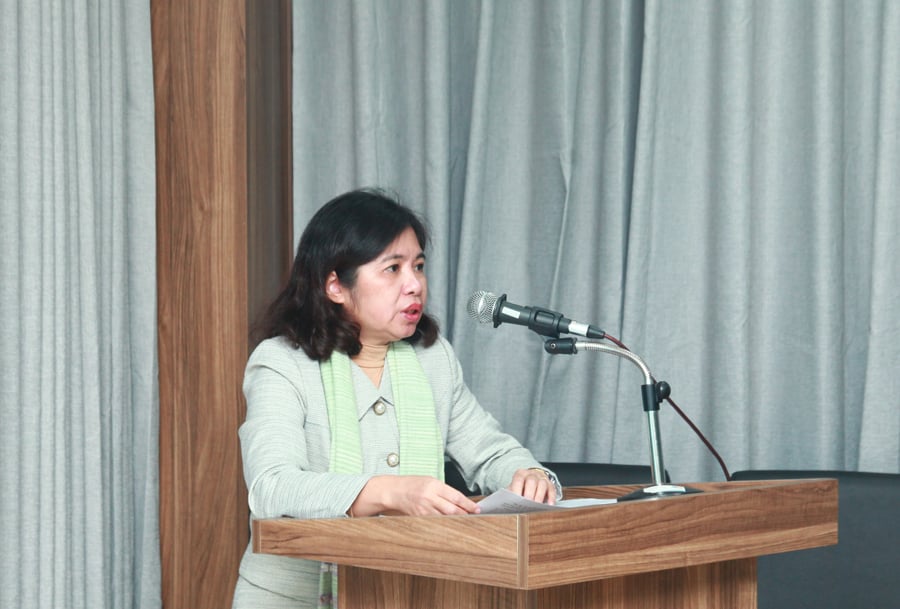
Deputy Director of the Tourism Information Center Phan Thi Thai Ha presented the introductory report at the workshop. Photo: TITC
At the workshop, experts, scientists, and managers contributed many ideas, shared useful information, and implementation experiences from localities, units, and internationally. All opinions highly appreciated the content of the research topic; affirmed the need for an accurate, standard database, maintained and updated regularly, ensuring legality. The platform system must be synchronous, integrate many shared utilities; and be connected to the database systems of localities and units.
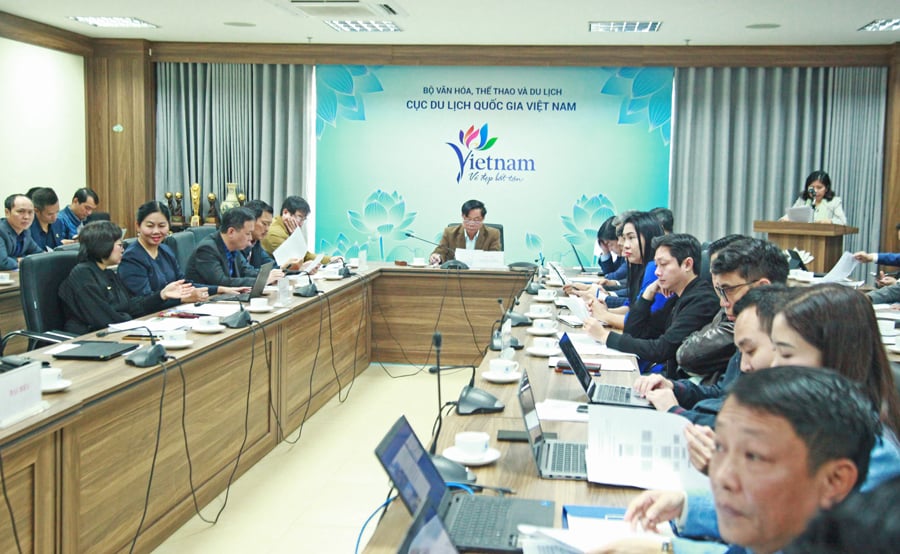
Overview of the workshop. Photo: TITC
Deputy Head of the Tourism Department, Vietnam National Tourism Administration Hoang Hoa Quan expressed the view that, to be sustainable, the map must integrate destination management data and control the problem of destination overload. Mr. Hoang Hoa Quan recommended ensuring data standards, developing from original data to localities; building an implementation process, from there spreading to localities. Also according to Mr. Hoang Hoa Quan, it is necessary to clearly identify the subjects in the process of updating information, data, and effective data management.
Sharing his experience from implementing the digital map of Hanoi's tourist destinations, Deputy Director of Hanoi Department of Tourism Nguyen Tran Quang said that without a unified platform, data interconnection would not be possible. Mr. Nguyen Tran Quang recommended the development of a comprehensive digital tourism map plan, building shared data and integrating many utilities.
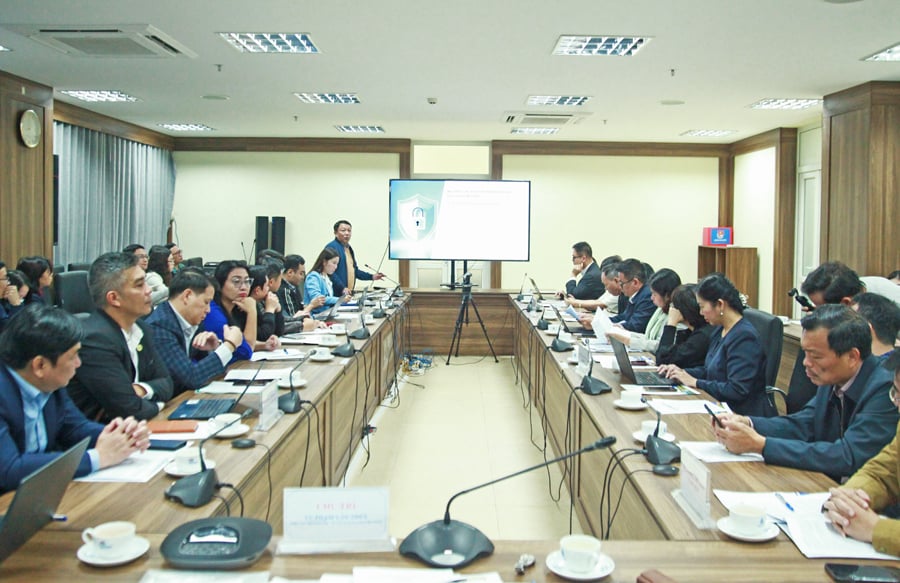
Comments highly appreciated the research topic and gave general comments on the need for an accurate and synchronous database. Photo: TITC
Mr. Hoang Son - Department of Digital Economy and Society under the Ministry of Science and Technology proposed that digital maps must integrate traffic density monitoring, thereby contributing to warning and advising tourists to make appropriate choices in their travel itineraries. In addition, it is necessary to integrate "low-altitude sky" information for tourism exploitation in the future. Mr. Hoang Son also said that it is necessary to create a digital technology ecosystem; build open data integrated with smart traffic; apply artificial intelligence to support tourists.
Speaking at the workshop, Deputy Director of the Vietnam National Administration of Tourism Pham Van Thuy emphasized that Resolution No. 57-NQ/TW of the Politburo sets out a strategic requirement that by 2030, state management activities must be operated in a digital environment, with seamless connections based on a system of correct, sufficient, clean, and live data. Resolution 82/NQ-CP of the Government also clearly stated the task of forming a smart tourism ecosystem, developing digital infrastructure, and modernizing management methods based on data and real time.
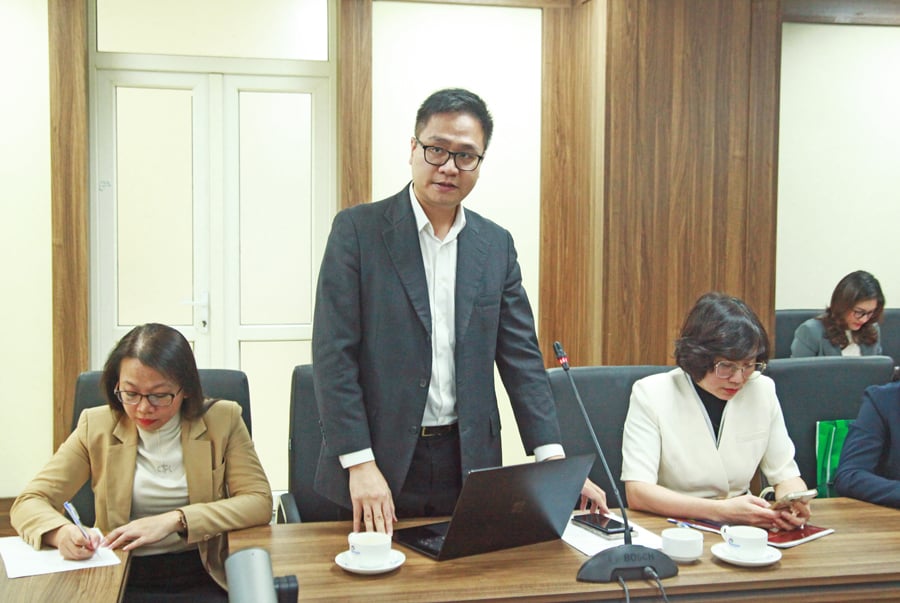
Mr. Hoang Son - Department of Digital Economy and Society proposed integrating "low-altitude sky" information for tourism exploitation in the future. Photo: TITC
According to Deputy Director Pham Van Thuy, in that process, the data platform and digital tourism map play a very important role. This is not only a tool to promote destinations or support tourists, but also a digital infrastructure to serve destination management, monitor resource management activities, make policies, and assess the impact of sustainable tourism development...
“In practice, we must frankly admit that Vietnam's tourism data is currently scattered, lacking standardization and synchronization between the central government, localities and businesses. The deployment of digital map products in many provinces and cities is still fragmented, lacking the ability to integrate and share. In particular, most of the current platforms do not reflect the core elements of sustainable tourism development such as the capacity and load-bearing capacity of the destination; the flow of visitors; the impact on the environment, community and local culture...” - Deputy Director Pham Van Thuy emphasized.
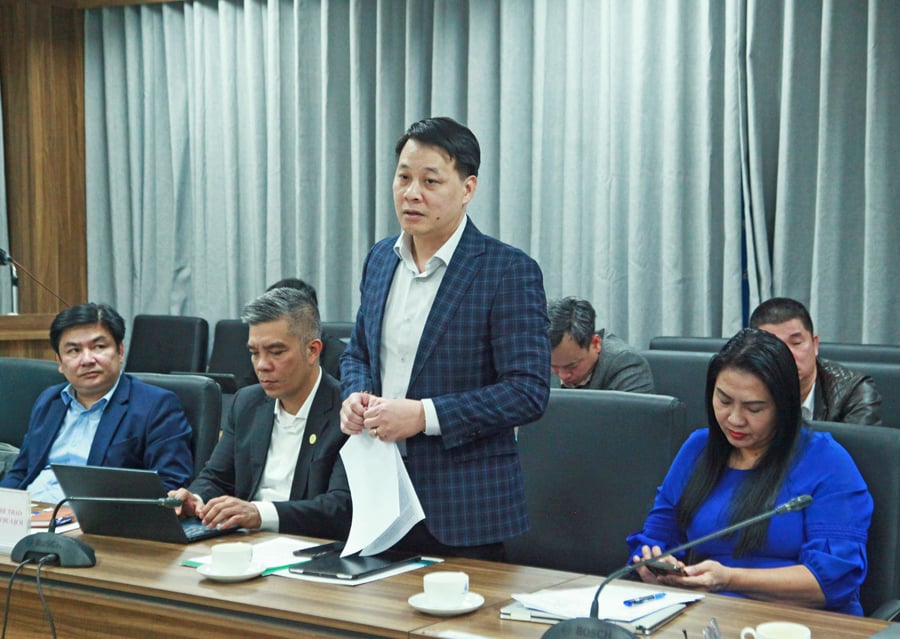
Deputy Director of Hanoi Department of Tourism Nguyen Tran Quang said that many localities have implemented the construction of digital maps, without a unified platform, data connection will not be possible. Photo: TITC
Through the workshop, Deputy Director Pham Van Thuy requested the research team to absorb shared opinions, regularly update data; have a process to build a digital platform to serve sustainable development. In addition, closely coordinate with localities, put standard data into digitization, especially in land use planning, issues of national sovereignty affirmation. Connect the database with relevant sectors and units and at the same time propose a plan to implement the next phase so that the digital tourism map can be deployed effectively.
Vietnam National Administration of Tourism
Source: https://bvhttdl.gov.vn/nghien-cuu-phat-trien-nen-tang-ban-do-so-du-lich-tich-hop-da-du-lieu-thong-nhat-dong-bo-trong-nganh-20251128085136632.htm














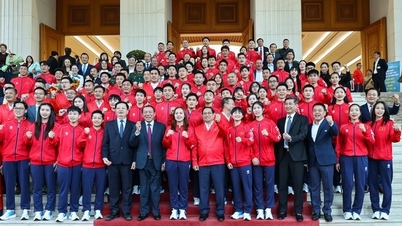

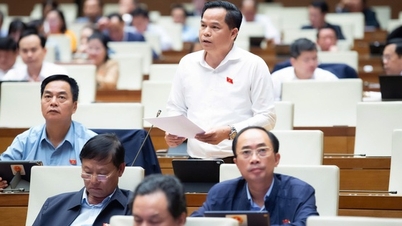




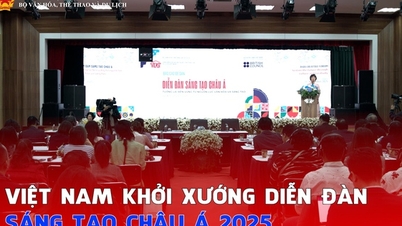
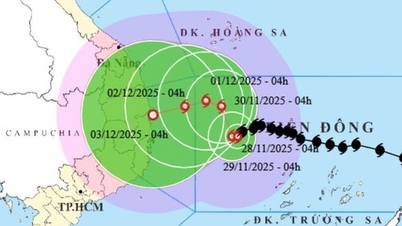

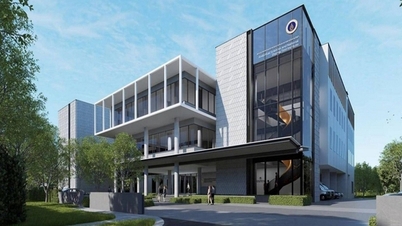
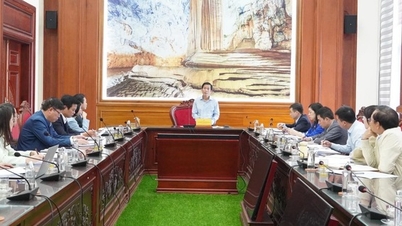



















































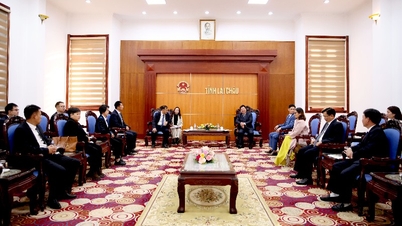
















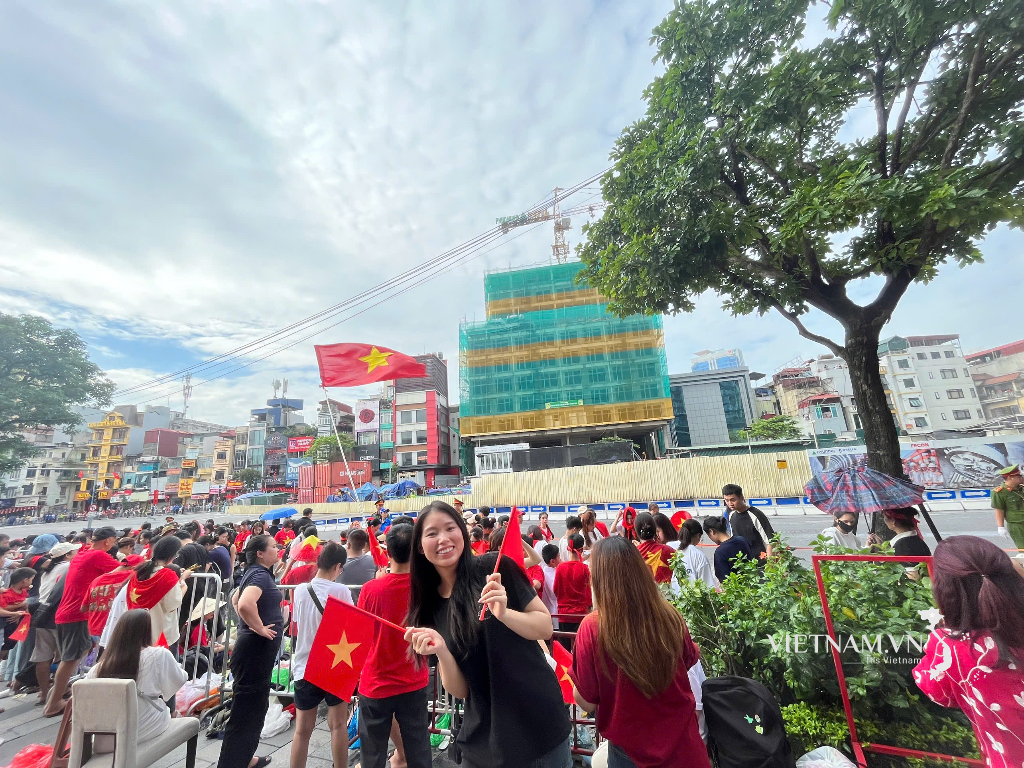
Comment (0)